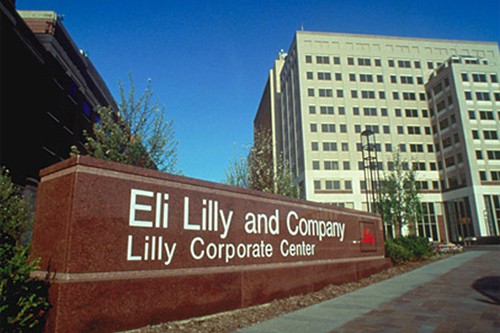
Immunocore and Lilly have signed a new deal that will see the companies run an immunotherapy-based clinical trial collaboration for the deadliest form of skin cancer.
Under the second deal between the two firms since 2014, Lilly and Immunocore will test the biotech’s lead T-cell receptor based investigational therapeutic IMCgp100, in combination with Lilly’s galunisertib and merestinib, for the treatment of melanoma.
Under the terms of the agreement, Immunocore and Lilly will conduct a phase Ib/II clinical study evaluating the safety and efficacy of IMCgp100, in combination with galunisertib, in metastatic cutaneous melanoma.
A second Phase Ib/II study will be conducted combining IMCgp100 with merestinib in metastatic uveal melanoma. Lilly will act as trial sponsor.
These studies are anticipated to begin in 2016, according to the firms – no financial terms were however disclosed.
This also comes just a month after Lilly signed a multi-million dollar research pact with BioNTech to discover and market cancer immunotherapies.
IMCgp100 and galunisertib are members of a new class of cancer treatments known as immunotherapies, which are designed to enhance the body’s own immune system in fighting cancer and whose mechanisms of action have the potential to be complementary.
IMCgp100 is Immunocore’s most advanced Immune mobilising mTCR Against Cancer molecules (ImmTAC), which are a new class of bi-specific biologic drugs based on T-cell receptors (TCRs) with ultra-high affinity for intracellular and extracellular cancer targets.
Lilly’s galunisertib is a small molecule inhibitor of TGF beta R1 kinase that in vitro selectively blocks TGF beta signalling.
TGF beta promotes tumour growth, suppresses the immune system and increases the ability of tumors to spread in the body. Merestinib is Lilly’s small molecule multi-kinase inhibitor that in vitro selectively blocks signaling of MET, MST1R (RON), AXL, and MKNK1/2.
Richard Gaynor, senior VP of product development and medical affairs for Lilly Oncology, said: “This collaboration with Immunocore underscores Lilly’s commitment to discovering the potential of combination therapies, which will be key to the future of cancer care for people fighting diseases such as melanoma.”
This is the second deal in the past year for Immunocore and Lilly having in 2014 entered into a co-discovery and co-development collaboration to research and potentially develop other novel T-cell-based cancer therapies built on Immunocore’s ImmTAC platform.
Growing trend
This follows a recent spate of deals in cancer immunotherapy among big pharma firms and smaller biotechs, and comes off the back of recent approvals for immunotherapy drugs across a range of cancers.
This includes Dendreon’s Provenge, the first onco-immunotherapy that gained approval for prostate cancer in 2010.
In 2011, Bristol-Myers Squibb launched its melanoma immunotherapy Yervoy (ipilimumab) and just last year also saw approval for its next-gen cancer treatment Opdivo (nivolumab), which is expected to make $6bn at its peak with a range of other cancer licences set to follow in the coming years.
Opdivo is currently competing with another PD-1 cancer immunotherapy drug in the form of Merck & Co’s Keytruda (pembrolizumab), which also has a licence for melanoma.
More treatments in this class are also expected to come from AstraZeneca and Roche in the next two years.
This means that any drug approval from the Lilly/Immunocore collaboration will likely be late to the market. But if it proves to be highly efficacious – and priced below its competitors – it should be able to gain some share of the growing new cancer immunotherapy market.




